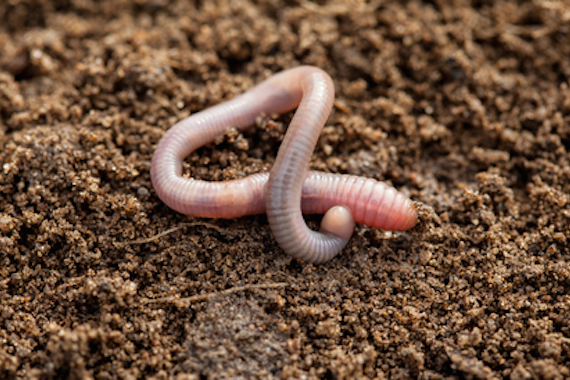Traditional leaders in Zambia have asked the Government to set up a seed bank and protect the indigenous breeds and livestock from the influx of hybrid ones induced by multinationals globally and are genetically modified to attain long-term-food security.
The traditional leaders in their petition to the Government seek the Government to devise a policy to protect the indigenous seed and livestock because the proliferation of the Genetically Modified Organisms, which only favors business, have serious negative effects on human beings.
The traditional leaders warned against the promotion of GMO seeds and livestock in the country in recent years in the absence of a policy noting that if perpetuated could result in the extinction of indigenous seed varieties and reverse the country’s food security.
The traditional leaders in their petition contend that during traditional ceremonies, most of the indigenous seeds and livestock are displaced but the unchecked influx could reverse what should be preserved for the future generation, hence the need to lobby for their protection.
“The indigenous seeds are slowly being replaced by hybrid seeds and livestock yet there is no policy by the Government to permit GMOs in the country.
There is a need for chiefdoms to encourage people to maximize and retain traditional seeds and livestock while encouraging multinationals to also embrace indigenous seeds which according to agriculture experts assure food security.
Last September, interest groups that met in Lusaka lamented the ongoing misunderstanding with the Government on the ongoing revision of the 2002-Genetically Modified Organisations (GMOs) policy in Zambia.
The non-state actors seek the retention of the traditional seed and other foodstocks as part of the agroecology’ to protect Zambia’s food sovereignty.
In recent years, there have been attempts by the Government to review the GMO (Non Biotechnology and Biosafety Policy) at the expense of the traditionally accepted farming systems already in place and are ‘free from any modification’.
Peasants, small holder farmers-among other beneficiaries from the agriculture sector say they are content with the policy in place which promotes food security.
The current policy allows farmers to retain traditional seeds and other forms of inputs to allow for sustained use of the rich soils than induce GMOs which are consequential to the farmer.
During a meeting organized by the Zambia Alliance for Agroecology and Biodiversity (ZAAB)-a coalition of various interest groups it was argued that inducing the modified organisms threatens soil yields from year to year in turn, affects farming profitability.
GMO are hazardous to human life and the environment and further threatens Zambia’s food sovereignty and ultimately affects the country’s ability to compete on the export markets
The players-embracing peasant and smallholder farmers are concerned at the poor stakeholder engagement and lack of adequate communication surrounding the draft GMO policy in recent years.
The lack of communication and misunderstandings over the proposed GMO policy-superseding the one initiated in 2002 and intended to protect the farmers against any undesirable inducement of unwanted elements in the soil has heightened the impasse.
Arguably, the non-state actors and other various interest groups in the agriculture sector remain opposed to any type of modification of any organism for onward application in the sector to avert contamination and affecting the traditional farming methods that are profitable and harm free to humans.
Muthinta Nketani–the ZAAB’s national coordinator in her presentation during the stakeholder engagement in Lusaka, expressed concern at the lack of collaboration and dialogue over the GMOs. She argued against the Government’s unilateral plans to induce unilateral legislation.
This if, arguably to modify any acceptable practices at the expense of the majority farmers, needed consensus to enhance the country’s food sovereignty; regrettably, all efforts have failed in recent meetings.
The planned inducement of GMOs is feared would defeat Zambia’s quest to be food secure and fail to compete on the export market with modified maize variety.
The players argue that the Government unilateral decision to validate the National Biotechnology and Biosafety Policy and open up ‘Zambia to live GMOs in Agriculture’ would reverse the country’s gains hence the need for dialogue to allow all players have an input into the new policy.
“Modern Agriculture involves the use of agrochemicals and fertilizers which can be withdrawn at any time and their effects reversed over time. But GMO genes are self-replicating and can therefore trigger and cascade changes whose consequences no-one can predict.”
Peasant farmers and other interest groups have thrown their weight on the calls for total rejection of the GMOs noting that it was time Zambia remained a continental food hub.
Recent market trends in the Southern African Development Community (SADC) region, show that maize is fetching an average US$270/ton, and can rise in nearest weeks, subject to trends and demand among food starved countries in dire need of the staple food.
Proposals-globally by interest groups to have the effects of any modifications of any type of organism to compel the manufacturer to bear the costs induced on the soil and humanity has faced resistance by multinationals-many seeking inducement of GMO.
The multinationals, some players in the sector argue, are allegedly seeking to impose GMOs in the sector despite its vast consequences. This in turn will make farmers as “sacrificial lamb” to bear the burden of consequences of their modifications-a demand being detested.
She further contends with scorn: “the policy formulation process should be encompassing of all divergent views and should exhaust all stages to the satisfaction of all constituents. I strongly oppose the #biosafetyandbiotechnologydraftpolicy #saynotogmos” she adds in her tweet.









